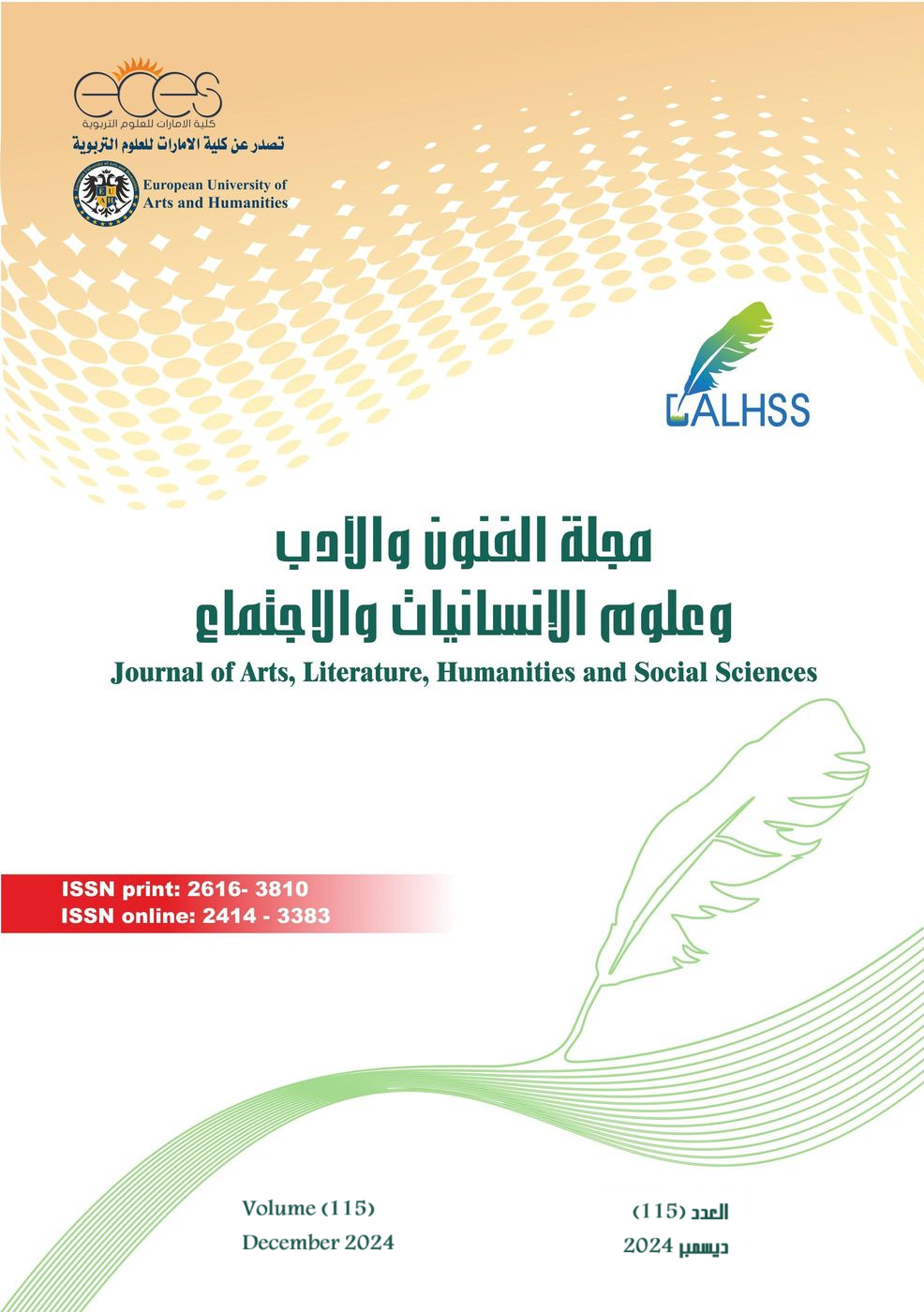Reviving Artistic Heritage with Modern Techniques: Ali Al-Sharif as a Model
(An Analytical Artistic Stud)
Abstract
The study aimed to identify the artistic features and characteristics of drawings and their techniques, in an attempt to uncover the meanings and ideas contained within them. This necessitated the researcher selecting a sample of the artist's works of an archaeological nature as a source of artistic heritage, executed in a contemporary art style. In her study, the researcher adopted a descriptive and analytical approach, appropriate to the nature of the subject matter. The study comprises a general framework and four sections, consisting of a description of the forms and techniques, an analysis of the features and content, and an interpretation of the data obtained by the study. Among the most important findings of the study is that it revealed backgrounds related to the meanings associated with the Kingdom's cultural heritage, through the artist's attempt to reformulate the heritage and condense its vocabulary in a way that enriches the artwork and consolidates the issue of belonging.
References
2. الرباعي، احسان. والرشدان وائل) 2003م). اشكالية التواصل مع التراث في الاعمال الفنية، مجلة جامعة دمشق، مج 19- ع2، ص 141 -168.
3. التهاتوني، محمد علي (1961م). موسوعة الكشاف "اصطلاحات الفنون والعموم"، مكتبة لبنان، بيروت.
4. قبيعة، راتب (١٩٩٦م). الرسام الفرنسي "مارك شاغال". دار الراتب الجامعية، بيروت، لبنان.
5. سليمة، د. بن مخلوف (2022م). السرد البصري والتشكيلي في الفن، مجلة النص، ع60، مج2، جامعة الجيلالي اليابس، الجزائر، ص499 -503.
6. بايار، جان فرانسور (1998م). أوهام الهوية، ترجمة حيم طوسون، دار العالم الثالث.
7. مهران، إيناس محمد (2024م). السمات الفنية المميزة لفلسفة ما بعد الحدثة في أعمال بعض الفنانين والإفادة منها في مجال التصميم. كلية التربية النوعية، جامعة أسيوط، مصر.
8. مراد وهبة (1997م). المعجم الفلسفي، دار الثقافة الجديدة، القاهرة، ص642 – 167.
9. Ali, W. (1997) Modern Islamic Art: Development and Continuity, University of Florida Press, p. 52; Dadi. I., "Ibrahim El.
10. Editorial, Widewalls. (2016) Repetition in art to be exactly the same over and over again. Retrieved from: https://www.widewalls.ch/magazine/repetition-in-art-artists-photography (25/2/2022)
11. Feldman, E. B. (1985). Thinking about Art. New Jersey, United States of America: Prentice Hall
12. 4-Gunter, A. (1990) Investigating Artistic Environments in The Ancient Near East. Washington: Smithsonian Institution.
13. Sherline Pimenta, (2010), Ravi Poovaiah, ibid, p 36-37.
14. https://arrafid.ae/Article-review?I=sB25DaFhjG0%3D&m=5U3QQE93T%2F0%3D https://www.mnbaa.com https://www.canva.com/learn/principle-framing-graphic-design/
15. https://www.alukah.net/culture
16. https://ar.wikipedia.org/wiki
Copyright (c) 2024 فوزية عبدالله إبراهيم الحديثي

This work is licensed under a Creative Commons Attribution-ShareAlike 4.0 International License.



